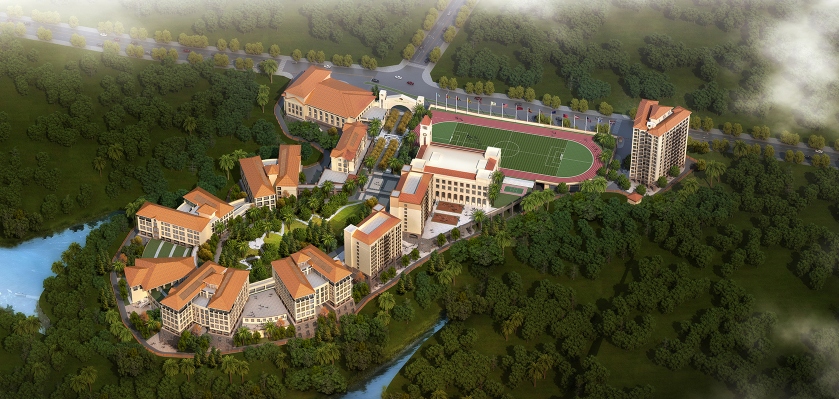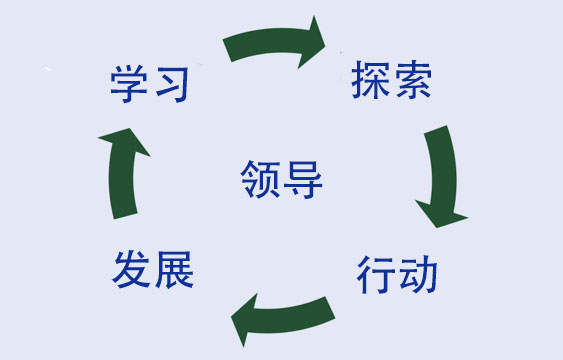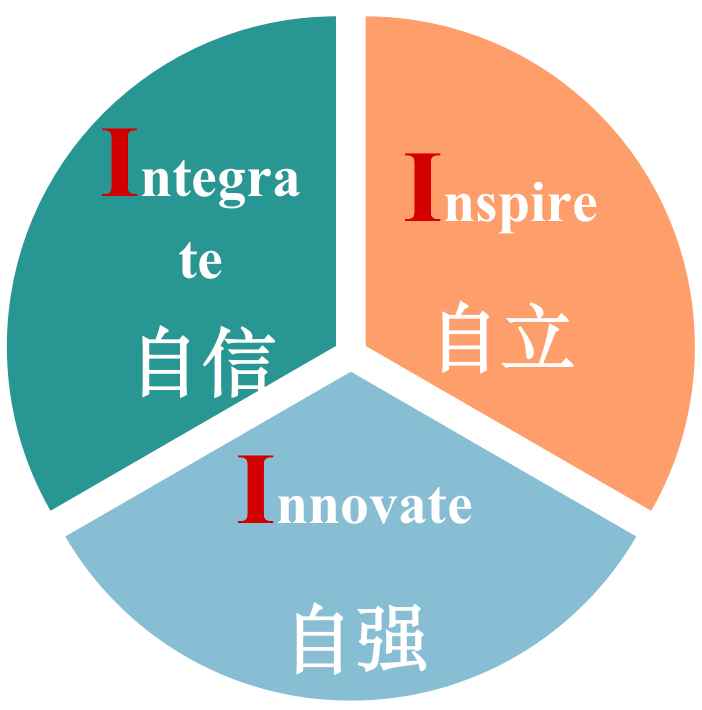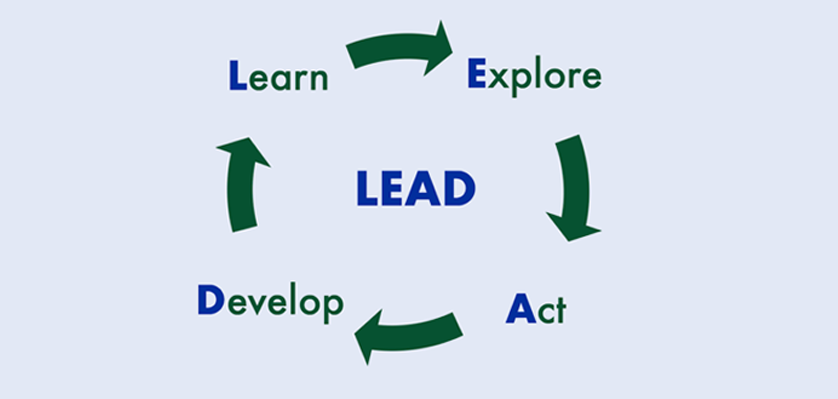学生家长手册

SGA学生家长手册
学校简介
深圳外国语学校(集团)湾区学校是由深圳市政府投资兴建、深圳市教育局领导、深圳外国语学校(集团)管理的一所多元融合特许学校。深外湾区学校面向全球招生,不限国籍户籍。学校为十二年一贯制,覆盖小学、初中、高中学段,实行小班教学。
作为粤港澳大湾区第一所先行示范多元融合学校,深外湾区学校由市委市政府特许批准开设,肩负着在教育管理、教学模式、课程融合上探索创新的使命,是教育部批准的深圳先行示范项目之一。

使命和价值观
SGA使命: 深圳外国语湾区学校旨在培养具有中国情怀及国际视野的创新型人才。

- 具备全球视野
- 践行终身学习
- 追求科技创新
- 理解文化传承
- 保持克制谦虚
- 课程是有生命的
- 学习无处不在
- 每一个学生都是独一无二的
- 为未来培养人才
国际文凭组织(IB)旨在培养有探究精神、有知识、有爱心的年轻人,通过跨文化的理解和尊重,帮助创造一个更好、更和平的世界。为此,该组织与学校、政府和国际组织合作,开发具有挑战性的国际教育项目和严格的评估过程。这些项目鼓励世界各地的学生成为积极、有同情心的终身学习者。
国际文凭学习者简介
所有三个国际文凭项目的预期成果都是在一个具有国际视野的学校社区中培养学生。国际文凭课程学校致力于发展学生的学习者特征,成为具有国际视野的全球公民。
国际文凭学习者是:
- 敢于探究
- 热爱学习
- 善于思考
- 擅长沟通
- 坚守原则
- 思维开阔
- 懂得关爱
- 勇于尝试
- 全面发展
- 善于反思
关于国际文凭项目的更多信息,请访问: www.ibo.org
我校在全面落实国家课程标准的基础上,科学融合国际IB课程框架及IB教学方法,构建了涵盖“基础学科”“综合素养”“职业前沿”三大板块的丰富融合课程体系。除语文及道德与法治课程外,英语是深外湾区学校的主要教学语言,我们为英语作为第二语言、需要学习支持的学生提供短期的英语语言学习支持。
IBO小学课程为6至11岁的儿童设计,设计基于儿童的自然好奇心。学生每年参加六个'探究单元'。通过探究学习,孩子们有机会提出问题,研究答案,并参与到实践活动中,以相关和参与的方式获得知识。每个探究单元持续六周,这使得孩子们有时间深入研究该主题。为了确保孩子们获得广泛的知识基础,探究单元是在六个'组织主题'下开发的。
- 我们是谁
- 我们所处的位置和时间
- 世界如何运作
- 我们如何组织自己
- 我们如何表达自己
- 分享地球
学科领域为:社会研究、个人、社会和体育、数学、科学、技术、语言和艺术等学科领域与探究单元交织在一起,提供一种跨学科的学习方法。每个探究单元都具有国际视野和全球意义。学习成果在国际文凭组织提供给国际文凭课程学校的综合范围和顺序文件中得到了非常详细的阐述。这些文件按年龄组指出了小学课程学生应获得的技能和知识。评估是每个探究单元的一个组成部分,学生有很多机会展示他们的知识和技能。
评估可能包括自我评估或同龄人评估、演讲、书面作业、计算机生成的项目等。探究单元通常以学习庆祝活动结束,家长和其他学生可能会受邀请参加这些活动。在小学课程的最后一年,学生将参加小学课程展览。这是学生们的最终活动,展览的目的是展示他们作为小学课程学生所学到的知识。
小学教育项目促进学生获得技能和态度,以及学术知识。
小学课程学生会学习研究技能、思考技能、沟通技能、社交技能和自我管理技能。
一所教授小学课程学校会充满使命感和探索精神。接受小学课程的学生通过提出问题、研究答案、寻找解决方案和建立联系,努力地了解他们周围的世界。小学课程的国际重点使孩子们能够将他们在自己生活中所知道的东西与世界其他地方发生的事情联系起来。对其他习俗和文化的理解和尊重是小学课程的一个重要组成部分。接受小学课程的学生会明白,他们是一个更大的全球社区的一部分,因此,他们也会对同胞有责任感和义务感。小学课程的学生还会学习第二种语言。
小学课程会通过涵盖社会、身体、情感、文化和学术的学习来让儿童获得发展,教导儿童重视健康的身体和心灵。该课程旨在培养具有国际视野的学生,无论他们的生活将走向何方,他们都能在这个世界上占有一席之地。
深外湾区学校为中学生提供为期五年的中学融合课程(MYP阶段),以及为期两年的大学预科课程(DP阶段)。六至十年级修读结合中国国家课程标准与IB国际文凭框架的融合课程。经校内评估后,十一至十二年级准备申请海外名校的学生将继续修读IB-DP课程。湾区学校中学段的融合课程分为八个板块:
- 语言文学(语文/英语)
- 语言习得(语文/英语/小语种)
- 人文与社会(地理/中国历史/道法/经济/商科)
- 科学(生物/化学/物理/计算机)
- 数学(数学/竞赛数学)
- 艺术(美术/书法/媒体/戏剧)
- 设计
- 体育与健康(竞技体育/食品健康)
湾区学校中学段的融合课程以中国国家课程标准为基础,结合IB-MYP教学框架,二者有机紧密结合,辅以多元的教学目标、教学内容和评价标准,极大丰富学生的学习经验。中学段的融合课程经过仔细论证打磨,提供既符合国家课标、又拥有国际认证的教学框架和细节内容,为学生日后升学打好基础,开启通往全球高校学府的大门。湾区学校中学段课程核心:知识论、拓展论文、创意/行动与服务。中学阶段的单科及跨学科单元学习,能在让学生在汲取知识的基础上,运用探究式学习方式,建立在全球背景下更深层、更互联的认知和理解。我们教学的核心目标,是培养一系列核心学习方法,引导学生实现自我成长。中学学习方法旨在培养以下技能:
- 沟通
- 合作
- 组织
- 情感技能
- 反思
- 信息素养
- 媒介素养
- 批判性思维
- 创造性思维
- 思维转换
湾区学校课堂教学要求学生积极参与互动。每个学习单元的设计,均围绕着两个核心主题:帮助学生建立应对各种场景的学习迁移能力、灵活构建认知和转化知识的能力。在课程设计当中,着重让学生探索如何在实际生活场景中运用对应的知识、概念、技能,以培养学生的国际化视野和对于日益互联的世界的认识。这些设计在教学场景中的实际体现,通常为辩论、TED演讲、项目管理、实验、Learning walks、寻宝行动等形式。
培养探究思维、激发创意、创新型评估及解决问题,正是我们课程设计所遵循的理念。身怀着扎实的学术能力、胸怀天下的社会意识、不断探究的创新精神,湾区学校学子在未来一定会茁壮成长,成为未来社会的领军人才。
Student Parent Handbook

SGA Student Parent Handbook
School Profile
SGA aims to provide distinctive high-quality education through recruiting high quality teachers and delivering the International Baccalaureate programme. Teachers are recruited from diverse backgrounds always keep the learning and well-being of their students as the primary focus. The teaching takes place in small class groups by certified expat international school teachers and Chinese Co-teachers with international teaching experience

Mission vision and values
SGA Mission: SGA develops internationally-minded innovators with a strong grounding in Chinese culture.

- Global mindfulness
- Learning without boundaries
- Pursuit of technological innovation
- Understanding of cultural inheritance
- Grounded moral awareness with humility
- Curriculum is alive
- Learning is everywhere
- Every student is unique
- In preparing our students for any future
The International Baccalaureate (IB) aims to develop inquiring, knowledgeable and caring young
The lB Learner Profile
The intended outcome, of all three IB programmes is to develop students a school community that is internationally minded. Within IB schools, students develop the attributes of the Learner Profile, which are considered to the attributes of the internationally minded person.
IB Learners are
- Inquirers
- Knowledgeable
- Thinkers
- Communicators
- Principled
- Open-minded
- Caring
- Risk-takers
- Balanced
- Reflective
Further information about the IB programmes is available at www.ibo.org
Our aim is to encourage students to have a passion for learning and to carry that spirit with them throughout their lives. Our curriculum is the International Baccalaureate Organization's programmes PYP. English is the language of instruction throughout the school and support is available for students with English as an Additional Language(EAL)on a short-term basis.
The IBO Primary Years Programme is designed to build upon the natural curiosity of the child. Intended for children aged 6 through 11, students participate in six 'Units of Inquiry'per year. Learning through inquiry means that children are given the opportunity to ask questions, research answers and become involved in hands on activities that build knowledge gained in a relevant and engaging way. Each Unit of Inquiry lasts for six weeks, which allows time for children to develop deeply into the topic. To ensure that children acquire a broad base of knowledge, Units of Inquiry are developed under six'organising themes
- Who We Are
- Where We Are in Place and Time
- How the World Works
- How We Organise Ourselves
- How We Express Ourselves
- Sharing the Planet
The subject areas are: Social Studies, Personal, Social and Physical Education, Mathematics, Science, Technology, Language, and the Arts are woven into the Units of Inquiry to provide a trans-disciplinary approach to learning. Each Unit of Inquiry is international in perspective and of global significance. Learning outcomes are set out in great details in comprehensive Scope and Sequence documents provided to IB schools by the International Baccalaureate Organization. These documents indicate by age group, the skills and knowledge that should be acquired by PYP students. Assessment forms an integral part of each Unit of Inquiry, and students are given many opportunities to display their knowledge and skills. Assessments may consist of self or peer assessment, presentations, written assignments, computer generated projects etc. Units of Inquiry often end with a Learning Celebration to which parents and other students may be invited. In the final year of the PYP, students participate in a PYP Exhibition. This is the culminating event for students and the Exhibition is meant to display what they have learned as PYP students. The Primary Years Programme promotes the acquisition of skills and attitudes as well as academic knowledge.
Assessments may consist of self or peer assessment, presentations, written assignments, computer generated projects etc. Units of Inquiry often end with a Learning Celebration to which parents and other students may be invited. In the final year of the PYP, students participate in a PYP Exhibition. This is the culminating event for students and the Exhibition is meant to display what they have learned as PYP students.
The Primary Years Programme promotes the acquisition of skills and attitudes as well as academic knowledge.
PYP students learn research skills, thinking skills, communication skills, social skills and self-management skills.
A PYP school is infused with a sense of purpose and a spirit of inquiry. PYP students endeavour to understand the world around them by asking questions, researching answers, finding solutions and making connections. The international focus of the PYP allows children to connect to what they know in their own lives to what happens in the rest of the world. Understanding and respect for other customs and cultures is a vital part of the Primary Years Programme. PYP students come to understand that they are a part of a much bigger global community, and as such, have responsibilities and obligations to their fellow humans. PYP students also learn a second language.
The Primary Years Programme develops the whole child valuing a healthy body as well as a healthy mind by encompassing social, physical, emotional, cultural and academic learning. It is a programme aimed at creating internationally minded students who are prepared to take their place in the world no matter where life may lead them.
The IB Middle Years Programme (MYP) at the Shenzhen Foreign Languages GBA Academy (SGA) is a dynamic 5-year course that sees our students develop their identity, interests and sense of global citizenship. The learning takes place within individual subjects and also across interdisciplinary units, where students acquire knowledge and understanding through investigating concepts using different lens of inquiry, known as the Global Contexts that help embed a deeper, more relevant and relatable understanding. There is also a strong central focus on Approaches to Learning, which are a list of core learning skills that drive our students’ personal progression during their time with us at SGA.There are 8 different subject groups:
- Language & Literature: Chinese and English
- Language Acquisition: English (and Chinese)
- Individuals & Societies
- Sciences
- Mathematics
- The Arts
- Design
- Physical and Health Education
Central to the unique curriculum devised at SGA are the integrated elements of the Chinese National Curriculum that form the building blocks of the learning content in the MYP. Using the MYP framework to establish connections enriches our students’ learning experiences, whilst ensuring that our programme is competitive and comparable with our local, cultural standards and objectives. Our MYP Programme also prepares our students for the IB Diploma Programme, giving crucial international recognition to their learning and a gateway to universities all over the world.Approaches to Learning:
- Communication
- Collaboration
- Organization
- Affective Skills
- Reflection
- Information Literacy
- Media Literacy
- Critical Thinking
- Creative Thinking
- Transfer Thinking
Teaching and learning at SGA is interactive and requires active participation from students. Units of study are designed around big ideas that allow for the transfer of learning between different environments and encourage flexibility in our students’ when constructing their knowledge and understanding. Our curriculum embodies the outlook of exploring authentic real-life settings to develop international mindedness, with the aim of developing students who have a greater understanding of the settings in which our increasingly interconnected world is placed in. This will look like a variety of engaging activities that could range from debates, TEDTalk presentations, project management, experiments, learning walks and treasure hunts to name a few. Developing and nurturing inquisitive minds to innovate and evaluate solutions to problems and situations are at the forefront of SGA’s curriculum and ethos, and we endeavour to equip young leaders with skills that help them thrive in their futures.
Throughout their time at SGA, students will enjoy a diversity of exciting learning experiences and activities that will provide a strong social and academic foundation for their lives ahead.